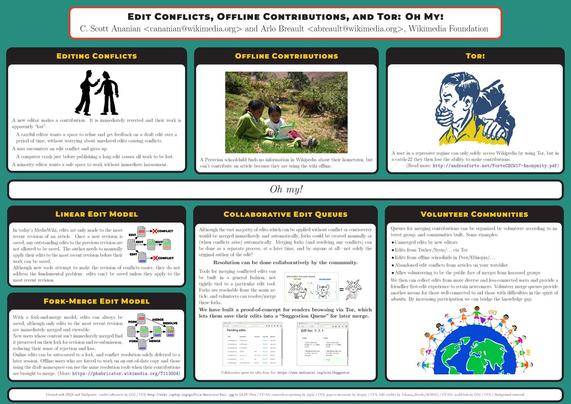Beloved programming community: many of you are hearing about the US DoJ threatening Wikipedia.
Some of you are thinking of ways to thwart this. Download the Wikipedia dumps, put it on IPFS or hand-couriered USB drives or other less-censorable systems.
A good impulse, but missing the point.
Wikipedia is not just a big document or a software artifact.
Its true value is that it is effortlessly available to a wide audience, can be updated rapidly, with no preconditions to view or edit.

